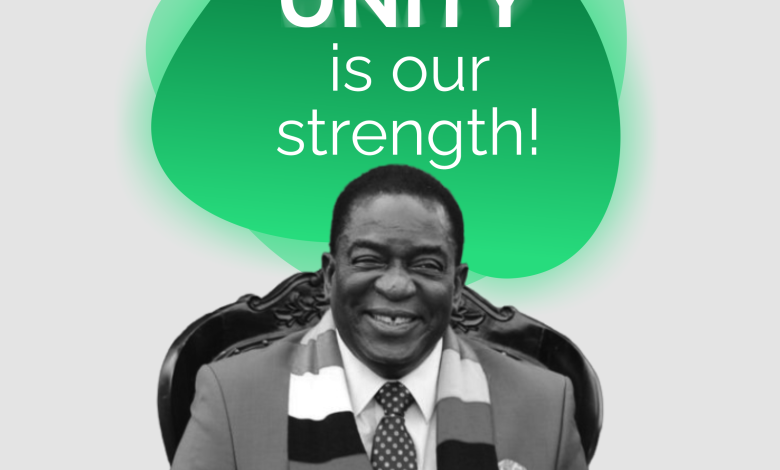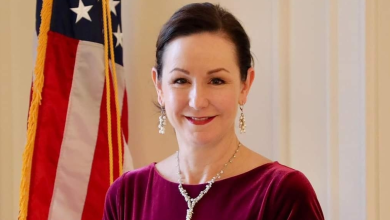Zimbabwe is a Unitary State – President Mnangagwa Reaffirms Commitment to Unity and Stability

In his State of the Nation Address (SONA) yesterday, President Emmerson Mnangagwa underscored the importance of preserving Zimbabwe’s status as a unitary state, warning against divisive elements that could destabilize the country. This message comes as the government pushes forward with its Vision 2030, which aims to transform Zimbabwe into an upper-middle-income economy through economic reforms, infrastructural development, and an unwavering focus on unity.
President Mnangagwa’s Call for Unity and Stability
President Mnangagwa has consistently highlighted the significance of unity, stability, and security as the pillars of Zimbabwe’s progress under the Second Republic. Addressing the nation, he stressed that maintaining social cohesion is paramount to achieving sustained development.
“The divisions based on regionalism, tribalism, and socioeconomic differences are unacceptable. As Zimbabweans, our strength lies in our unity,” Mnangagwa remarked. He reminded the nation of the critical importance of unity in achieving the goals laid out in Vision 2030, reaffirming that Zimbabwe will continue to work toward development with peace and harmony at its core.
Zimbabwe’s Path Toward Vision 2030
President Mnangagwa’s administration is committed to the transformation of the nation through its Vision 2030 blueprint. The country’s stable environment, marked by peace and tranquillity, has been a cornerstone for its growing economy. By fostering unity and creating an enabling atmosphere for business, Zimbabwe has seen increased investment, allowing development to thrive in key sectors such as agriculture, mining, and manufacturing.
The President has long emphasized the need for resilience and hard work, challenging Zimbabweans to remain confident in their ability to overcome adversity. This message continues to resonate with many, especially in light of the socio-economic progress achieved under his leadership.
Devolution: Empowering Provinces and Communities
A key strategy to strengthen Zimbabwe’s unity is the government’s Devolution Fund, which promotes the equitable distribution of resources to all provinces. This initiative is driving decentralization, empowering provincial and local authorities to address their unique developmental needs. President Mnangagwa noted that this approach ensures that no region is left behind, fostering national unity while promoting regional development.
“Devolution is not only about resource distribution but also about empowering communities to shape their own future,” he added.
Mthwakazi Republic Party: A Divisive Force
President Mnangagwa also took aim at the secessionist Mthwakazi Republic Party (MRP), which he accused of distorting historical facts to promote a divisive agenda. He highlighted that Mthwakazi represents a rich cultural heritage, not a separatist movement, and rejected claims that it was ever a kingdom.
“Mthwakazi was about unity, peace, and shared prosperity among diverse peoples, not about tribalism or division. These rogue elements seek to rewrite history for their own purposes,” the President stated.
Battling Neo-Imperialism and External Interference
Zimbabwe’s political landscape has not been without its challenges. Neo-imperial forces have sought to undermine the country’s sovereignty through political movements, NGOs, and media platforms, which Mnangagwa warned were being used to exploit regional grievances.
“Zimbabweans must remain vigilant in rejecting all forms of external interference designed to weaken our unity and sovereignty. Our unitary state stands firm against such actions,” he declared.
Constitutional Protection of Zimbabwe’s Unitary Nature
Zimbabwe’s 2013 Constitution explicitly enshrines the nation’s unitary and democratic character, safeguarding the integrity of the state. As President Mnangagwa noted, these constitutional guarantees ensure that Zimbabwe remains strong, united, and capable of overcoming the challenges it faces.
From Plumtree to Mutare, and Beitbridge to Chirundu, Zimbabwe remains a solidly united nation, ready to defend its sovereignty and work toward collective growth and prosperity.
Conclusion
President Mnangagwa’s message is clear: Zimbabwe’s unity is its greatest strength. His commitment to maintaining a unitary state, fostering development through the Devolution Fund, and rejecting divisive forces remains unwavering. Zimbabwe’s future rests on its ability to stay united, both in confronting external interference and in driving its own developmental goals.




